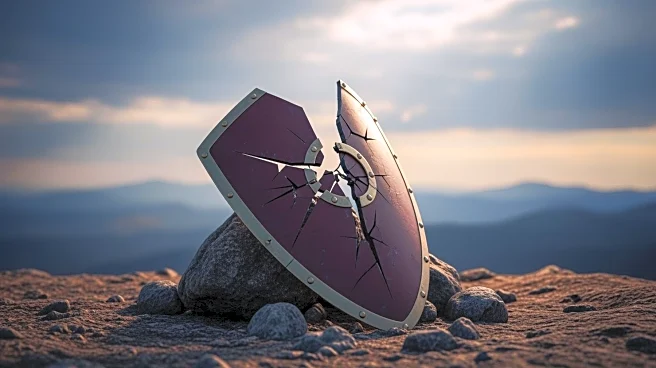What's Happening?
Ukrainian veterans are facing significant challenges in their recovery and reintegration into society as the conflict with Russia continues. Many soldiers have suffered severe injuries, including amputations,
and are undergoing rehabilitation at facilities like the Superhumans Center in Lviv. Despite advanced prosthetic care, veterans struggle with mental trauma and survivor's guilt, particularly those who endured captivity in Russia. The ongoing war exacerbates these issues, with major cities like Kyiv under regular attack. Veterans express feelings of isolation and unappreciation as they attempt to reintegrate into civilian life, often seeking units that accept amputees to continue serving.
Why It's Important?
The situation highlights the broader impact of war on society, particularly the challenges faced by veterans in adapting to civilian life. The mental and physical health of these individuals is crucial for their successful reintegration, affecting not only their personal lives but also the social fabric of Ukraine. The advanced prosthetic care available in Ukraine is a testament to the country's resilience and innovation in medical technology. However, the ongoing conflict poses a continuous threat to the stability and recovery efforts, potentially influencing international humanitarian support and policy decisions regarding veteran care.
What's Next?
As the conflict persists, Ukraine will need to enhance its support systems for veterans, focusing on mental health services and societal reintegration programs. The government and international partners may increase funding for rehabilitation centers and prosthetic technology. Additionally, the integration of amputee veterans into military units could become more common, leveraging their experience in drone warfare. The ongoing war will likely continue to shape the narrative around veteran care, influencing policy and humanitarian efforts both domestically and internationally.
Beyond the Headlines
The ethical implications of war and its impact on human lives are profound, raising questions about the responsibility of nations to support their veterans. The resilience of Ukrainian veterans serves as a powerful narrative of human strength and adaptability, potentially influencing cultural perceptions of disability and recovery. The focus on advanced prosthetic care and rehabilitation could drive innovation in medical technology, with long-term benefits extending beyond Ukraine's borders.










